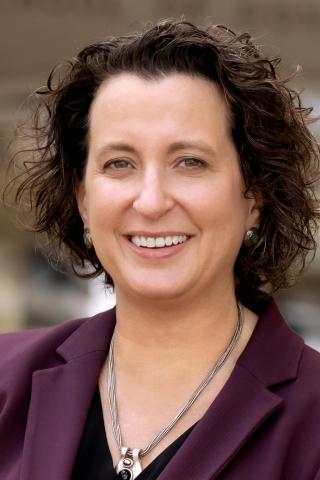Types of Local Public Health Agencies: County Health Departments
This page includes questions and answers about county health departments in North Carolina.
Please Note: These questions and answers have not been updated to reflect the changes from the 2012 legislative session. For more details, see the "legislative updates" page.
FAQs
A county health department is a single-county agency that provides local public health services for the residents of the county. A county health department typically is governed by a county board of health.[1] The board appoints a local health director to administer the department.
[1] A county with a population exceeding 425,000 may abolish the county board of health and transfer its powers and duties to the board of county commissioners. G.S. 153A-77(a). Mecklenburg county operated in this fashion for a number of years, until its county commissioners formed a consolidated human services agency in 2008. At that time the county commissioners assumed the powers and duties of a consolidated human services board.
During the 2011-12 state fiscal year, 75 counties are operating county health departments.
A county board of health has 11 members, appointed by the county commissioners. The board’s membership must include a physician, a dentist, an optometrist, a veterinarian, a registered nurse, a pharmacist, a county commissioner, a professional engineer, and three representatives of the general public. The members of the board who represent one of the named professions must be licensed. Members must be residents of the county, with one exception: if there is no county resident available for appointment to the licensed optometrist position, the county commissioners may appoint either a licensed optometrist from another county or a member of the general public to serve in that position. For all of the other licensed professional positions, if there is no county resident available to serve, the commissioners must appoint a member of the general public to serve in that position. If there is only one county resident available to serve in a professional position, the county commissioners have the option of appointing either that person or a member of the general public.[1]
[1]GS 130A-35(b).
County board of health members are appointed to three-year terms and may serve a maximum of three consecutive three-year terms. There are a couple of exceptions to this general rule. First, if a person is the only county resident who is a member of one of the licensed professions that must be represented on the board, the person may serve more than three consecutive three-year terms.[1] Second, the county commissioner may serve only as long as he or she remains a county commissioner.[2]
[1]G.S. 130A-35 (c).
[2]The NC Attorney General has advised that a county commissioner member of a district board of health may serve for as long as he or she remains a commissioner, even if that time exceeds three consecutive three-year terms. Although the Attorney General’s opinion addressed district boards of health, not county boards of health, this practice has been followed by some county boards of health as well. Attorney General Advisory Opinion to Hal G. Harrison, Mitchell County Attorney, 1998 WL 856356 (Oct. 8, 1998).
A county board of health member may be removed for any of the following reasons:
- Commission of a felony or other crime involving moral turpitude
- Violation of a state law governing conflict of interest
- Violation of a written policy adopted by the board of county commissioners
- Habitual failure to attend meetings
- Conduct that tends to bring the office into disrepute
- Failure to maintain qualifications for appointment (e.g., maintaining licensure in a profession, being a county resident, etc.)[1]
[1]G.S. 130A-35(g).
The board of county commissioners may remove a county board of health member for one of the causes listed in question 5. The board of health does not have the authority to remove its own members, though the board of health may recommend removal to the commissioners if it believes there is cause for removal. Before the board of commissioners acts to remove a member, it must give the member written notice of the basis for removal and provide an opportunity for the member to respond.[1]
[1]G.S. 130A-35(g).
A county board of health is charged with protecting and promoting public health in the county it serves.[1] The board has the authority to adopt local health rules that apply throughout the county, including within any municipalities, and may impose fees with the approval of the county commissioners, except when state law prohibits the imposition of local fees.[2] It appoints the local health director after consultation with the county commissioners. It can also hear appeals related to disputes about local health rules or fines imposed by the local health director.
[1]G.S. 130A-35(a).
[2]G.S. 130A-39.
In general, no – but there is an exception. Local board of health rules pertaining to smoking in public places must be approved by the county commissioners.[1]
[1]G.S. 130A-498(a).
Yes. A county board of health must base any locally imposed fees on a plan proposed by the local health director, and any fees adopted by the board must be approved by the county commissioners.[1]
[1]G.S. 130A-39(g).
The county board of health appoints a local health director, who must meet qualifications set forth in state law. The board must consult with the county commissioners before making the appointment.[1] The local health director hires, and may dismiss, health department employees.[2]
[1]G.S. 130A-40.
[2]G.S. 130A-41(b)(12).
A county health director must meet minimum education and experience requirements prescribed in law.[1] In most cases, he or she must have one of the following:
- A medical doctorate
- A master’s degree in public health administration plus at least one year of employment in health programs or services
- A master’s degree in another public health discipline plus at least three years of employment in health programs or health services
- A master’s degree in public administration plus at least two years of experience in health programs or health services
- A master’s degree in a field related to public health plus at least three years of experience in health programs or health services[2]
- A bachelor’s degree in public health administration or public administration plus at least three years of experience in health programs or health services
There is also a law that creates a limited pilot program (one county only) to allow a person with education and experience in public health nursing to serve as a local health director, as long as the appointment is approved by the NC Secretary of Health and Human Services.[3] In fiscal year 2011-2012, Northampton County’s health director was serving pursuant to this law.
[1]G.S. 130-40.
[2]The State Health Director must review requests by educational institutions to determine whether a master’s degree offered by the institution is related to public health for purposes of this law.
[3]G.S. 130A-40.1. This law requires the health director in the pilot county to either: (1) have a bachelor of science in nursing degree from a program that includes a public health nursing rotation, plus ten years’ public health experience, at least five of which were in a supervisory capacity at the agency at which the person is a candidate for local health director; or (2) be a registered nurse without a bachelor’s degree but with at least ten years’ experience, including at least seven years in an administrative or supervisory role and at least five years at the agency at which the person is a candidate for local health director.
Yes. G.S. 126-5(a)(2) provides that the provisions of the State Personnel Act apply to certain local entities, including county and district health departments.
A county health department is a unit of the county for many purposes, including finance and budgeting. The budget of a county health department must be approved by the county commissioners, and the county is held accountable for financial management under state law.[1] It is customary for a county board of health to approve a proposed budget for the department before it is submitted to the county commissioners. North Carolina’s standards for local public health agency accreditation specify that the agency’s governing board must review and approve the department’s budget annually.[2] This does not create an absolute requirement for local boards of health to review agency budgets, because the accreditation program does not require compliance with every provision in the standards—agencies may skip a small proportion of the standards and still be accredited.[3] Therefore, it is possible that a local health department could be accredited without meeting the specific standard that requires board of health review of the budget.
Funding for county health departments comes from several sources, including federal funds (which are often “categorical”—that is, designated for particular services), state funds, and local appropriations from the county. Many health departments receive grant or contract funding from public or private sources. A county health department may also generate revenue from fees for services. Fees for clinical services may be paid by third-party payers, including Medicaid, NC Health Choice, or other public or private insurers. In some cases clients themselves may be charged a fee for clinical services, but charges to a client may be prohibited or limited by law. The county board of health may impose fees for other local services, such as on-site wastewater or private drinking water well permits, subject to limits imposed in state law.
[1] The applicable law is the North Carolina Local Government Budget and Fiscal Control Act, GS Ch. 159, Subchapter III, Art. 3.
[2]10A NCAC 48B .1306.
[3]The accreditation rules establish benchmarks and specify how many benchmarks must be met in each of three areas: agency core functions and essential services, facilities and administrative services, and board of health. 10A NCAC 48B. 0103. A local public health agency must satisfy at least six of eight benchmarks pertaining to the board of health.
Under present law, counties with populations exceeding 425,000 may abolish a county board of health and transfer its powers and duties to the board of county commissioners.[1] If a board of county commissioners abolishes its board of health, the county commissioners acquire the powers and duties described in question 7 and discussed in more detail here.
[1]G.S. 153A-77(a).





